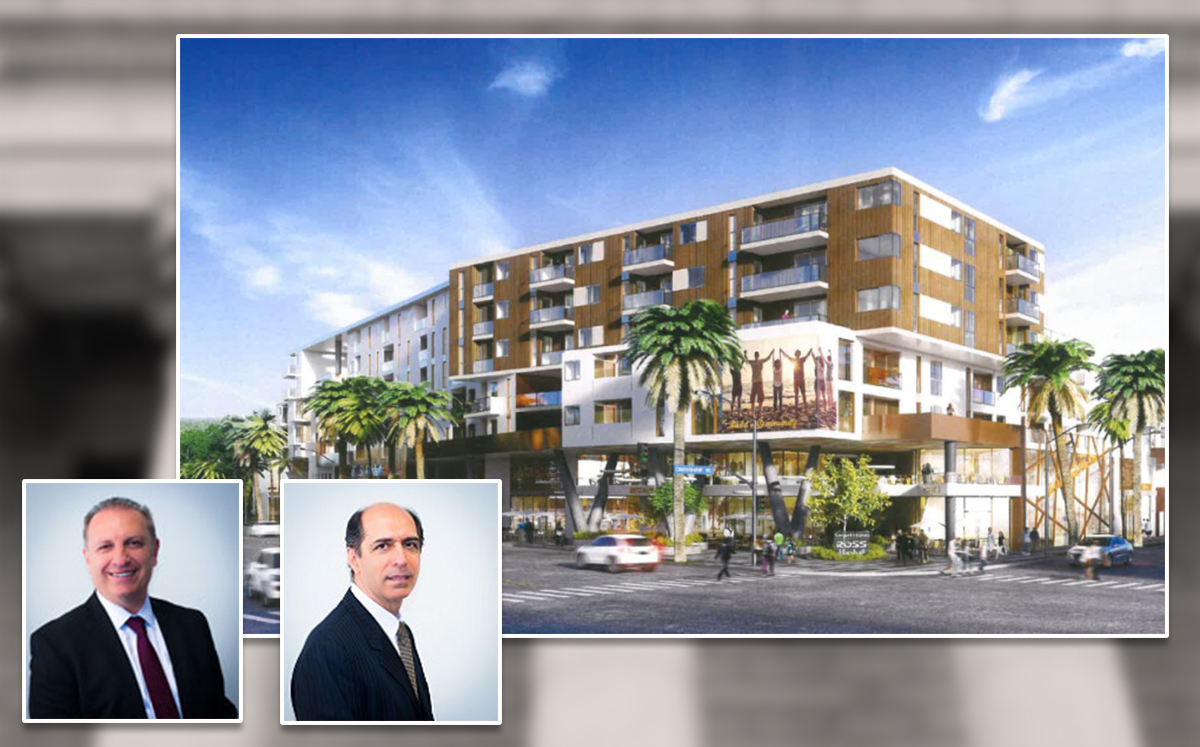Trending
Gabay lawsuit to revive District Square may have merit
Lawyers say the embattled developer has a strong legal case

The past two years have been rough for Los Angeles developer Arman Gabay, who faces federal bribery charges stemming from allegations that he offered money to city officials in exchange for preferential treatment and inside information.
But now Gabay, who has denied the bribery charges, is hitting back with litigation of his own.
Gabay and brother/co-developer Mark Gabay filed a lawsuit on Feb. 14, claiming city officials violated California law when they decided to nix the brothers’ proposed 577-unit apartment complex in Arlington Heights.
Legal experts who read the complaint say the Gabays have a valid legal argument, and they could compel the city to permit the development.
“There are very strong merits to the case and the city could be exposed to a significant loss here,” said land use attorney Ryan Leaderman of Holland & Knight.
“It is undisputed that the Gabay’s project complies with regulations,” said Damian Martinez, an attorney at Andrade Gonzalez. But Martinez noted since Arman Gabay is facing federal charges, “it might not be in the city’s best interests to be awarding projects to developers who may be felons by the time the project is completed.”
The project, dubbed District Square by its developers, is a flashpoint for a variety of issues — including the multidimensional relationship between public officials and private developers, and fears of gentrification and displacement in a mostly Latino and black neighborhood.
But lawyers say the legal dispute comes down to one issue: Whether full-throated neighborhood objections can override the state’s Housing Accountability Act, a law that was precisely intended to shut down the NIMBYs.
A development unravels
In 2011, the Gabay brothers, who could not be reached for this article, registered a limited liability company named District Square to develop a retail-focused project at 3650 Crenshaw Blvd.
But with mounting debts and expected tenants including Target Corp. pulling out, the Gabays went back to the drawing board, proposing a six-story, 648,000-square-foot building with five stories of residential units and a 93,000-square-foot first floor of commercial space.
The new plan came as federal officials arrested Arman Gabay in 2018, claiming he offered money to public officials in exchange for lease deals and insider information. Gabay disputed the charges, and a trial is set for June.
At first, the development’s history and Gabay’s arrest didn’t seem to matter as city officials greenlighted the revised District Square project. The plan zoomed through the Planning Commission and the City Council, which voted unanimously to approve it after finding it “substantially compliant” with zoning law and the city’s Crenshaw Corridor community plan.
But in September, then-City Council President Herb Wesson, whose district includes the proposed project, said he regretted voting in favor of the project because none of the 577 units were set aside for publicly subsidized affordable housing.
The council member echoed neighborhood activists including Damien Goodmon of the Crenshaw Subway Coalition who blasted District Square “as wildly opposed by the community.”
Goodmon said it took “tremendous gall” to propose a market rate project with the potential to raise rents in a neighborhood struggling to stay affordable.
In November, the South Area Planning Commission – a volunteer, mayor-appointed board that hears appeals on approved projects – sided with community activists (and Wesson) and voted to nix the project.
Leaderman, who was at the heated November meeting, noted, “The developer definitely had some baggage, which limited the political options for the South Area Planning Commission.”
See you in court
But a developer’s baggage is not legal grounds for killing a project, Leaderman said.
The state of California in 1982 passed into law the Housing Accountability Act, and then amended the measure in 2017 to ban cities from denying any zoning compliant project unless it has “a specific, adverse impact upon the public health and safety.”
Further, denying a project that complies with zoning laws must be accompanied by “specific written findings,” according to the state’s Housing Accountability Act.
The law has resulted in courts overturning city denials of projects in Berkeley, Redwood City and other locales, leading to those projects being built. District Square could represent another reversal, lawyers say, or at least one the city of L.A. spends years in court fighting.
One problem for the city defending itself in court, lawyers argued, is they never published a written finding explaining why the South Area Planning Commission terminated the District Square project.
Also, commissioners and project opponents focused on gentrification, not public health and safety. “Changing neighborhood character – or gentrification – is not allowable grounds (to deny a project) under the Housing Accountability Act,” said Ryan Patterson, a real estate attorney at Zacks, Freedman, and Patterson.
Arman Gabay using the law to revive District Square as he faces legal charges of his own could prove an unfortunate irony for the city and community activists.
Greg Bonnett, an attorney at the nonprofit Public Counsel, noted that the Housing Accountability Act is often utilized for projects that have an affordable housing component, instead of market rate projects in neighborhoods that need more subsidized housing.
The city responded to questions with the statement: “We are reviewing the complaint and have no further comment at this time.”
Goodmon said fighting the lawsuit could be an uphill battle. Instead, the community activist asserted that the city has ground to foreclose upon the property due to government loans given to District Square that the developers have defaulted upon. It’s an argument that has been supported by others including former city Councilmember Jan Perry, who is currently challenging Wesson for a seat on the County Board of Supervisors.
“I hope the city would be wise enough to do that given the U.S. Attorney’s prosecution against Gabay,” Goodmon said.
Lawyers for developers, however, say that the Housing Accountability Act is a righteous law even when used to defend unpopular projects such as District Square.
“It was pretty clear that the community did not want this project,” Leaderman said. “Nevertheless, the Housing Accountability Act says that there is a shortage of housing in the state, and it is a massive crisis.”




